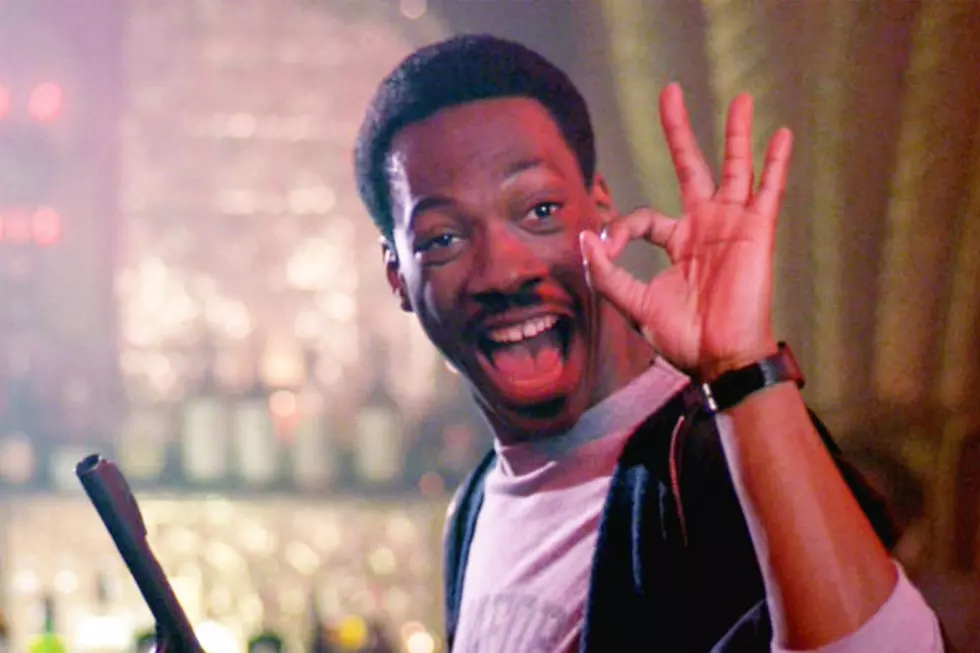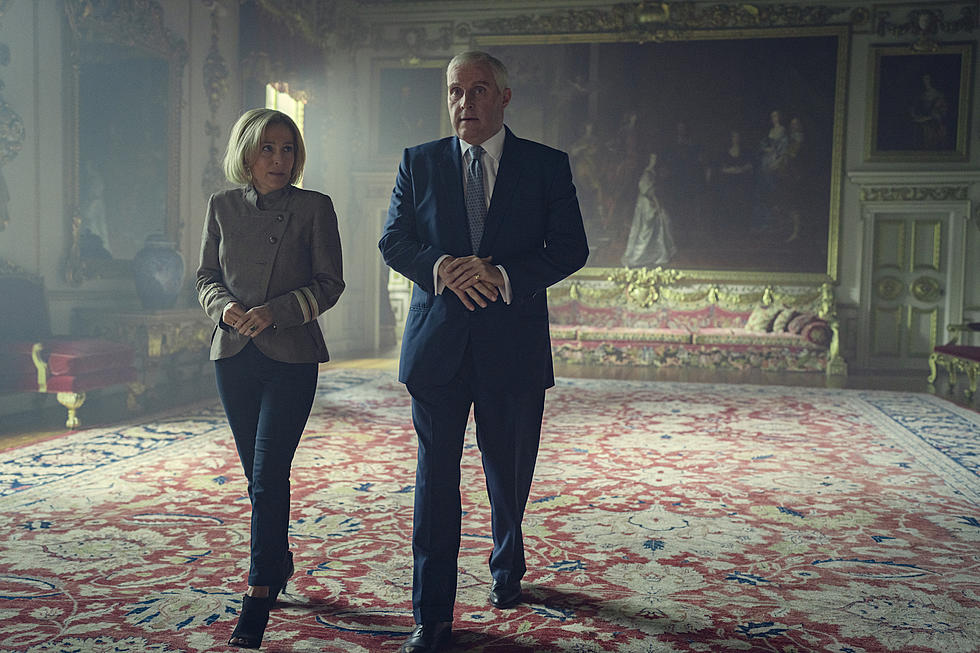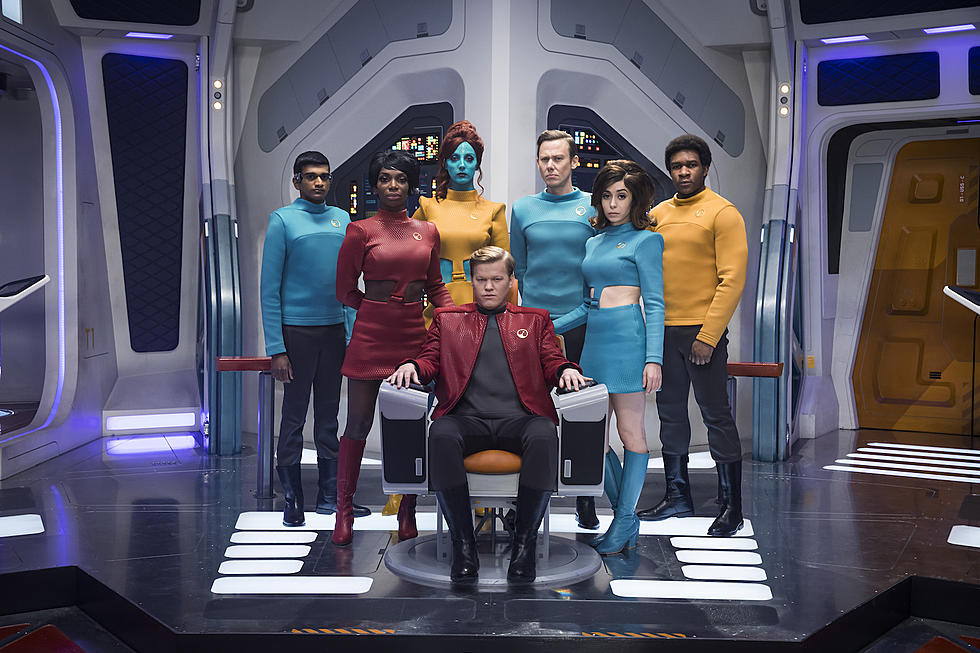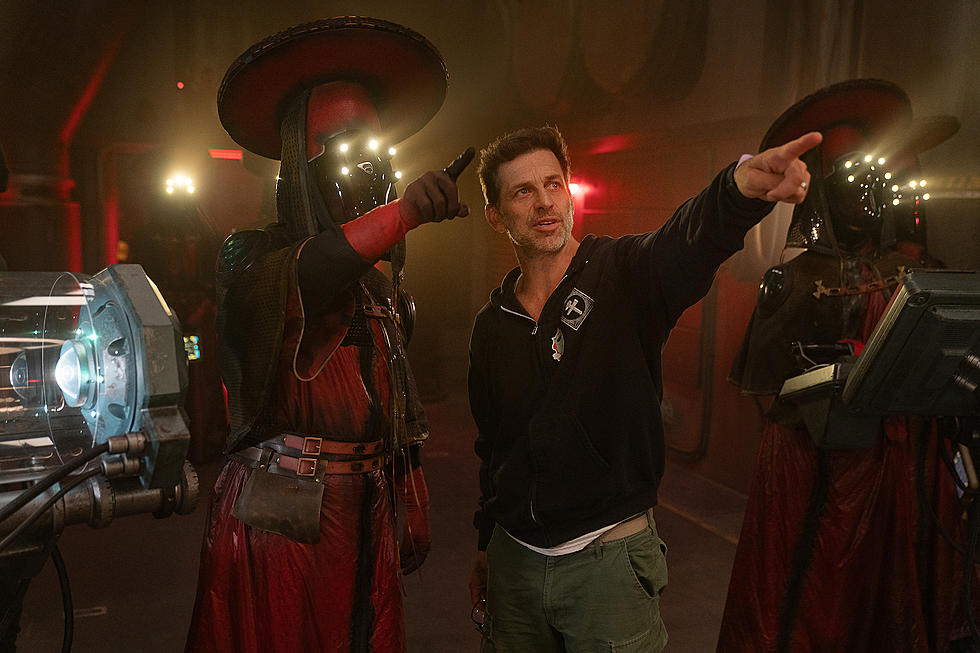
‘Arrested Development’ Season 4 Review
Mother of Gob, ‘Arrested Development’ season 4 is really here! The long-awaited return of the Bluth clan has finally arrived on Netflix in its entirety, and we’ve gone through the entire 15-episode binge from top to bottom. And much like Netflix’s model, why wait for 15 weeks of reviews when you can release them all at once!
We’re eager to hear your thoughts on ‘Arrested Development’ season 4 as well, so check out our epic review inside, and find out what happened to Michael, George-Michael, George Sr. Gob, Lindsay, Tobias, Lucille, Buster and maybe even Maeby!
- 1
Season Premiere: “Flight of the Phoenix” (Michael)
Right off the bat, one has to note the mileage will vary in the sheer comprehension of what we’re seeing. We’ve all overloaded on ‘Arrested Development’ of late, from the frantic coverage to the ongoing marathons, so the mere thought of witnessing a new episode after seven years can overwhelm the senses from the first moments. Lest we forget, a great deal of fans will have watched the premiere at upwards of 3:00 A.M, further heightening the surreal nature of “Flight of the Phoenix.”
Once we’ve established our seaward legs however, the music plays just as we remember, literally and figuratively. The rhythm, the dialogue, the characters all as though we’d never left. Though for as much of “Flight of the Phoenix” belongs to Michael Bluth, the burden naturally falls on the premiere to answer some lingering questions, and create a few mysteries of its own. Michael Bluth has become a pitiful shadow of his former, confident self, debasing to Lucile 2 at one point in time, and awkwardly horning on his son’s life at college.
To make the long story short, the sheer excitement of the premiere somewhat overshadows its need for any “instant classics” as far as the humor is concerned, but “Flight of the Phoenix” gives us plenty to chew on for the season at large, from Lucille’s upcoming trial and divorce, to Michael’s pitiful state and strained relationship to George Michael, the abandonment of Sudden Valley, and an ostrich. The premiere counts among the most difficult to review, but certainly brings the magic, old and new.
NetflixNetflix - 2
“Borderline Personalities” (George Sr.)
So, now that the pressure to acclimate to the new format has passed us by, the season moves into its first overly character-centric piece, George Sr. The Bluth family patriarch might seem like an odd choice to begin with, given the diminishing popularity with fans compared to other members of the family, but George would seem the most logical candidate for overarching plot advancement.
“Borderline Personalities” also pushes through some of the flimsier aspects of Netflix’s revival season, namely that of the obvious effects and occasional greenscreen character scenework, most notably in an early appearance from Barry Zuckercorn. The effects can become distracting, particularly in an episode so reliant on George Sr. and Oscar, but again, better we burn through the more glaring issues early on.
It’s a lot to take in overall, a trend increasingly apparent among the new episodes, as we try to wrap our heads around George and Lucille’s land grab plans and the sweatlodge scheme, but once again there doesn’t seem to be much in the way of overt humor. A few setups for future episodes, and some great guest stars (John Slattery, and a brief appearance from ‘Community’s Dan Harmon!), but certainly more setup than payoff.
NetflixNetflix - 3
“Indian Takers” (Lindsay)
And so we arrive at Lindsay and Tobias, or rather Lindsay foremost, in an episode that perhaps feels the most familiar yet despite a bit of lag. Checking in with Lindsay’s journey since the finale takes us through one of the most natural lingering questions, that of her self-identity as an adopted Bluth child. Once again, the episode goes through quite a bit of space in getting through that idea, from India, to a new house with Tobias, and ultimately an exodus with her new lover Marky Bark (Chris Diamantopoulous), but ultimately feels the most transformative of the three episodes thus far.
It’s interesting to note that fans of ‘Arrested Development’ will likely traverse the newest episodes with increasing vigilance, given our advanced knowledge of the show’s propensity for background information. For instance, it wasn’t until our second watch of “Indian Takers” that we realized Lindsay’s shaman was actually – SPOILER ALERT – Maeby herself, sure to be explained later. It becomes almost dizzying to watch an episode with so much in the background, from Tobias’ obvious presence in India, to a few tidbits of Gob’s dealings back in 2006.
Ultimately, “Indian Takers” feels the most yet like a true evolution of the series and its characters, though still needs a bit of refinement in finding its pacing. These episodes certainly feel much longer than we’re used to, not only for the running time.
NetflixNetflix - 4
“The B. Team” (Michael 2)
I was reminded Sunday morning of a piece I’d put together long ago, shortly after my first run-through of the original ‘Arrested Development.’ As a kneejerk reaction, I criticized the reverence of ‘Arrested Development’ given its inherent lack of soul, more specifically likeability, a point Michael himself makes a meta reference toward in “S.O.B.s.” My love for the series grew over time, as with all ‘Arrested Development’s tendency to grow stronger with time and repeated viewing, but that unlikable sentiment has certainly resurfaced around Michael, here starring in his second episode of the new season.
“Flight of the Phoenix” saw Michael Bluth fallen to a selfish shadow of himself, the sentiment of which takes an intriguing, and absurdly meta turn in the involvement of Ron Howard, Brian Grazer, and Michael’s new role as a movie producer to his own life. Certainly, the development flows naturally out of the prior series finale, much like Lindsay’s identity crisis in the last episode, but it can be difficult to process such a radical turn for the ‘Arrested Development’ we’ve come to know.
Having such supporting returns as Andy Richter, Carl Weathers, Warden Gentles and Kitty certainly helps ground things, with room for new introductions to Ron Howard and Isla Fisher’s character Rebel Alley, but we’re almost uncertain what to make of the season’s fourth episode. It pays a price perhaps, for dramatically veering the narrative in a new direction, but doesn’t do any favors for the dangerously unsympathetic Michael.
NetflixNetflix - 5
“A New Start” (Tobias)
The new format of ‘Arrested Development’s fourth season will prove hit and miss with fans, but it’s “A New Start” that sells the premise much better than its predecessors. Finally, we’ve come far enough into the season that the many setups of the first four episodes begins to pay off, plotted around one of the series’ most laugh-out-loud characters. Tobias’ journey naturally intersects with Lindsay’s at a number of points we’ve already seen, but the crucial sense of familiarity offers a much more rewarding turn that the season had built toward.
Similarly cathartic is the episode’s direct address of Tobias’ sexuality, finally cluing him into the gag without necessarily losing his trademark oblivious humor. The episode veers off in some unexpected directions, particularly the meta Fantastic Four references at the expense of Roger Corman’s real-life flop, but the resulting double-entendres gave us our best laughs of the season thus far. Tobias has long been one of the more entertaining characters to follow, making his new journey through life and love with “DeBrie” all the more engaging, and the most overtly funny of the season. Plus, literal doctor!
NetflixNetflix - 6
“Double Crossers” (George Sr. 2)
Just as Michael had earlier been granted a second episode, so too has George Sr. received his second spotlight of the season. It’s a bit odd, considering we’ve barely checked in with Maeby, Buster or Gob thus far, but it seems once again the goal of “Double Crossers” lies in paying off some previous plot threads, while moving things forward on the informational front.
Sadly, that’s where things continue to unravel a bit, all the double-talk, plot advancement, and crisscrossing threads ending up a bit convoluted for its own good. We’re starting to understand the principles behind keeping Georg Sr. and Oscar separate previously, not only for practical purposes, but also not to dilute the characters. Particularly now that Oscar resembles George Sr., and the two have begun to swap personalities, it’s become increasingly difficult to follow both’s respective schemes, invariably making the George episodes among the weaker of the season.
As the beginning of the second leg to the season, we’re privy to several more upcoming threads such as those between Lindsey and Maeby, and perhaps a bit of Gob path over the whole period, but sadly “Double Crossers” dumps a bit too much exposition on us without enough jokes to soften the blow.
NetflixNetflix - 7
“Colony Collapse” (Gob)
“Colony Collapse” offers up what seems to be season’s longest episode to date, clocking in at about 35 minutes, quite an extension from the 22 minute slots ‘Arrested Development’ episodes have conformed to in the past. Thankfully, the episode chooses the right man for the Gob, utilizing another of the show’s best performers for another mile-a-minute episode. The series can’t quite help that the Tobias and Gob episodes have been the strongest to date, given the comedic presences of both David Cross and Will Arnett, as other episodes have tended to suffer from exposition overload.
Much like “A New Start,” “Colony Collapse” wisely picks up on a dropped thread from the series finale in much further exploring Gob’s relationship with Ann than we might have expected. The presence of Plant also manages to reintroduce some of the series all-time favorite gags, some of which admittedly run their course a bit long, but offer some much needed laughs over the course of our marathon to date.
Gob’s journey in particular loses a bit of steam after the separation from Ann and the Bluths, moving into his time in Mark Cherry’s entourage and repeated instances of the “Forget-Me-Now,” but ultimately finishes strong with the introduction of a small mystery for his character, and a brief tease of Maeby’s upcoming storyline. So far, the season’s best episodes have all revolved around the fan-favorite characters, even if the pacing feels a bit off, so hopefully more collisions will take place going forward.
NetflixNetflix - 8
“Red Hairing” (Lindsay 2)
Remember when we thought Gob had the longest episode yet? In comes Lindsay’s second outing “Red Hairing,” clocking in close to 40 minutes total, and spanning quite a bit of ground in the process. As with the last time around, Lindsay’s episodes won’t bring the biggest laughs but instead continue to offer some nice humanization to the character that wasn’t as present in ‘Arrested Development’s original run.
If anything, our only real complaint of “Red Hairing” lies in the fact that the episode has so many narrative balls to juggle (heh), with family characters popping in and going off in every different direction, it can be difficult to follow all the rapid turns and impacts felt across the entire narrative. Not only that, but the timeline becomes increasingly convoluted, in instances where we see Lindsay and Maeby picking up after Tobias’ arrest, while Michael’s first storyline ended somewhere in the middle with his ostrich encounter.
It’s difficult to get a handle on the Herbert Love character as well, whether by writing or Terry Crews’ performance, but “Red Hairing” doesn’t lend him much more a clear presence, for all his screentime. Given that “Red Hairing” just about represents the midpoint of the season, we’re hoping things become clearer plotwise, especially now that Lindsay has an apparent handle on her identity issues.
NetflixNetflix - 9
“Smashed” (Tobias 2)
Where Tobias’ last episode “A New Star” had the built-in strengths of relying on a fan-favorite character as it intricately tied into a previous episode, this time around Tobias’ “Smashed” has far less to keep it afloat, we’re afraid. Don’t get us wrong, Tobias’ efforts to mount a Fantastic Four musical from rehab as a means to get close to DeBrie (Maria Bamford) come off charming enough and introduce a few new characters along the way, though the various pieces don’t come together in a particularly satisfying way.
Perhaps tellingly, some of “Smashed”s stronger moments come from callbacks to the series’ best gags, wisely peppering in a “Mr. F” or two before Tobias inevitably blues himself in an effort to portray the Invisible Woman himself. The effort to include Lucille into the episode unfortunately leads to very little actual exchange between she and Tobias, while Buster’s brief appearance seems to waste another opportunity among the 30-minute runtime.
All in all, “Smashed” winds up feeling a bit too incidental to the plot as a whole, while at least setting up a different portion of the intricate Cinco de Cuatro Party
NetflixNetflix - 10
“Queen B.” (Lucille)
And so, we finish the second third of ‘Arrested Development’s fourth season, given some much-needed perspective on Lucille’s activities over time. And like our check-ins with Lindsay, ‘Arrested Development’ season 4 seeks to provide some humanity to a previously one-dimensional character. Like George Sr., we wouldn’t necessarily have thought Lucille to be the source of one of the season’s more entertaining stretches, but “Queen B.” offers a much more reasonable balance of character development and plot exposition, delivering on the Lucille/Tobias pairings we’d been promised in the previous episode.
So too does Michael finally gain a chance to share scenes with his mother, and even Buster makes his longest appearance of the season. It’s in this manner that Lucille finally achieves some sympathy of her own within the Bluth family, always cast as the villain within the piece, before realizing the walls she puts up during an unlikely diagnosis from Tobias. The over-arching plot isn’t made much clearer, but seeing Lucille’s journey over the course of the years helps put much of the previous episodes in perspective, and lends stronger gravity to the interplay between George and Oscar.
Michael gets his own beats within the episode as well, both in reuniting with his mother, and once again coming to rivalry with Gob alongside a guest appearance from Gene Parmesan. Most satisfying within the episode however are Lucille’s catharsis, the final tag revealing Marky’s explosion, and the tease of a shocking new mystery with Lucille 2. Perhaps disorganized, but still one of the more satisfying episodes of the season.
NetflixNetflix - 11
“A New Attitude” (Gob 2)
Well, if Gob’s first episode “Colony Collapse” proved to be one of the more outright funny installments of the season, follow-up episode “A New Attitude” certainly proves to be the most eventful. Not only do we have an impressive timeline for Gob spanning his initial encounters with Michael, all the way through a pseudo relationship with Tony Wonder (Ben Stiller) and an impressively convoluted reveal of Michael’s Cinco de Cuatro“forget-me-now” blackout in the premiere, but peppered in are some major updates on Sally Sitwell and Ann Veal’s futures along the way.
Naturally, the major bombshells of “A New Attitude” lie in the inevitable fallout of Gob and Tony Wonder’s relationship, though we likely won’t grasp the fallout until sometime in the final four episodes, leaving little beyond the initial shock to chew on. The same can be said for George-Michael’s apparent relationship with Rebel Alley, which will require additional context to effectively land.
We were glad to see Tony Wonder return for a meatier role than his brief appearances (well-utilizing real-life wife Christine Taylor along the way), despite the fact that his apparent role within the season proves a bit jarring for now. We’re hoping not to have seen the last of Ann either, given that she and George Michael have had zero interaction since the 2006 finale, that we’ve seen. All in all, the absurdity within the episode works, from the ballfight to the repeated mask humor, but we suspect “A New Attitude” requires exactly that, and a greater understanding of the season to appreciate.
NetflixNetflix - 12
"Señoritis" (Maeby)
Well, now we’re starting to move into the thick of things, aren’t we? All season long we’ve been waiting for Maeby’s episode to pay off her brief appearances, particularly those of you who noticed ahead of time that Maeby was the Shaman from Lindsay’s journey. It’s of interest to note that Maeby and George Michael’s episodes provide perhaps the greatest payoffs to the season, even as their appearance in flashback strains the most credulity given Michael Cera and Alia Shawkat’s obvious aging.
Yet even with the technical flub, Maeby has always proven among the more intelligent and mischievous characters, making it all the more interesting to see her forced to lead the high school life she’d conned her way out of so many years earlier. The relationship with Perfecto and his ultimate reveal doesn’t quite land, though the turn of Maeby being labeled a sex offender like her father certainly makes for a nice payoff at the end.
In the end, Maeby has perhaps the smallest interaction with the actual Bluth clan, outside of George Michael and her mother, but “Senoritis” most certainly delivers a high amount of payoff from a fan-favorite character.
NetflixNetflix - 13
“It Gets Better” (George-Michael)
Like Maeby’s episode before it, George Michael’s spotlight episode “It Gets Better” proves among the more cathartic of the season, since perhaps the age of both characters naturally makes their journeys over “The Great Dark Period” all-the-more transformative. In particular, George Michael’s evolution over the multiple years of college proves particularly effective, given so much of the original series was spent in his father’s shadow.
Of course, George Michael’s relationship with Maeby proves the most fruitful, as we see that much of “FakeBlock” centered around impressing her, despite the lack of any actual product, though any attempt at intimacy ended up thwarted by his actual desire to teach her basic math. And for the many callbacks gags, some of the new material offers one of the biggest laughs of the season with Ron Howard’s extended narration gag preventing George Michael from giving any response to his father or Maeby for 41 seconds.
It was also nice to dip into the past a bit more with Kristen Wiig and Seth Rogen, providing origins for the Cornballer, and our first glimpse at George Michael’s dead mother Tracey (Maria Thayer), though a bit less effective was George Michael’s future in a lawsuit with P.Hound, given it doesn’t seem to connect to the Cinco De Cuatro shenanigans involving the others.
NetflixNetflix - 14
“Off the Hook” (Buster)
Buster has remained conspicuously absent from the season , finally receiving his spotlight in “Off the Hook,” though for as much perspective as the installment offers, there isn’t much to be had in the way of laughs or excitement. Naturally, the running time devotes itself to Buster’s inevitable maturation, and an end to his need to be mothered, though little seems to have changed by the episode’s end, either through Ophelia Love or Lucille 2.
Buster’s initial psychotic attempts to fill in for his mother’s absence make for a few good sight gags, though the episode surprisingly spends little time with Buster and Lucille before sending the latter off to prison on account of Buster’s absence from the trial. Even Buster’s role within the explosion of Herbert Love’s podium and the resulting chaos feels rather tacked on and evocative of his role within the season itself, simply pushed on to the side as collateral damage for the more interesting installments.
“Off the Hook" doesn’t make for very exciting setup going into the final episode of the season, but admittedly the structure dictates that “Off the Hook” be seen as a piece of a whole, rather than something designed to stand on its own. If nothing else, the episode might tease a greater role for Buster within the purported movie, or at least the ongoing mystery of Lucille 2’s fate.
NetflixNetflix - 15
Season Finale: “Blockheads” (George-Michael 2)
Well, that….didn’t end the way we expected it to. Perhaps conditioned to the usual model of television in spite of the many deviations already in place for ‘Arrested Development’ season 4, we couldn’t help but expect a larger payoff from season finale episode “Blockheads.” Centric to George Michael once again, the finale itself keeps up the usual pace of jokes and layering, but doesn’t prove as all-encompassing as we might have hoped.
For one, the breadth of George Michael’s evolution and backstory already paid off within his first episode, leaving precious little material outside the love triangle between he, Rebel and his father, considering the FakeBlock storyline peters out in place of a resolution. It certainly doesn’t help that the Cinco de Cuatro story fades into the background as well, with too little attention paid to the other members of the ensemble and their own resolutions.
The first time around, ‘Arrested Development’s initial three seasons demanded both time to settle and a number of rewatches to appreciate, much the way a masterpiece seems best viewed from a distance. We certainly hope the same proves true for ‘Arrested Development’ season 4, as while the intricacy and Rashomon-style layering of the humor has already been evident, a stronger resolution might have been appreciated in case the movie never materializes.
In that way that some of ‘Arrested Development’s individual episodes have proven more rewarding with the addition of context, so too might the strength of ‘Arrested Development’ season 4 improve with the movie bringing a more conclusive end. “Blockheads” certainly ties an interesting bow on the dynamic between George Michael and his father, but ultimately falls short of a fulfilling place to stop our binge.
NetflixNetflix
More From ScreenCrush









